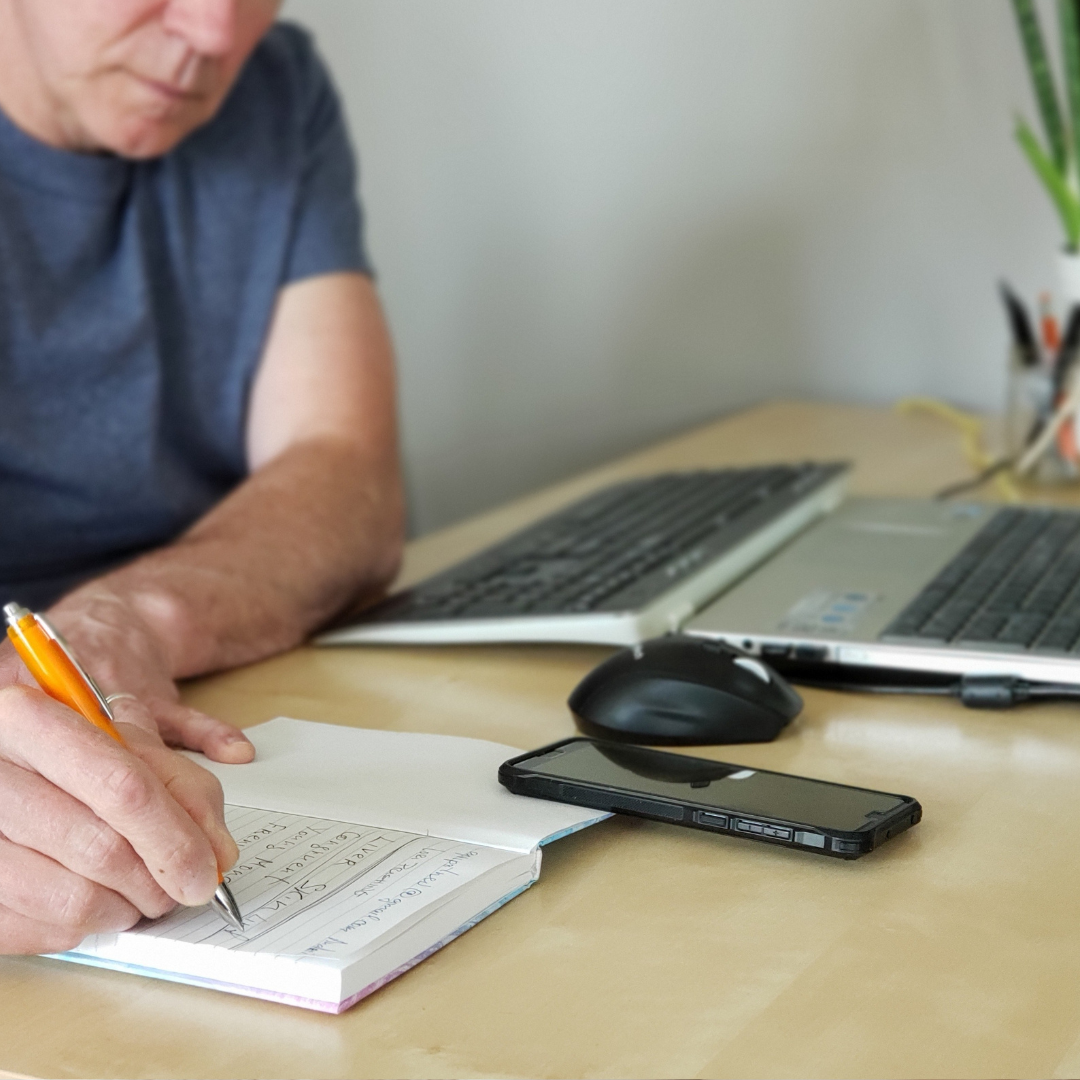Mental Health Tips For Parents
Oct 18, 2022
Parenting can be a blissful and rewarding time, but it can also be stressful, daunting and overwhelming. And guess what? It’s ok to admit that. Many of us have experienced difficulties that come with parenting. You may feel as though you’re constantly worried about how your child is progressing, or whether you are doing a decent job as a parent. The responsibility of playing the role of a mother or father (or in some cases, both), have a significant impact on how we feel about ourselves. This is why it’s so important to ensure we are looking after our own mental health, so in turn, we can offer as much love, energy and patience to our child(ren) as possible. In this article, we will shed some light on some tips geared towards nurturing your own mental health as a parent.
Be Gentle With Yourself 
When it comes to parenting, we tend to be our own worst critics. We expect perfection from ourselves and most of the time, we try to do everything ourselves. Being gentle with ourselves means giving ourselves permission not to be the best that's humanly possible, but rather to do the best we can right now. It’s important for parents to know that being gentle with yourself is just as important as being gentle with your child, and to remind yourself that you're doing the best you can in a role that has no specific job description.
Like many, you might fall into the trap of comparing yourself to other parents, criticising your own parenting skills or worse, expecting yourself to be perfect. Gentleness allows us to slow down, consider the way in which we interact, encourages us to be more compassionate (towards ourselves and others), and inspires a sense of tenderness in both our actions and in the way in which we communicate (Unimed Living, 2022).
Of course, sometimes we need to blow the whistle when it’s way past bedtime but when moments of doubt creep in, as they always do, try to take a deep breath and remember, each parent has a different style and unique situation they are navigating. You are doing it your own way, so own it!
Immerse Yourself In Activities That Fill You Up

We all have things that make us feel happy and full of energy. When we do these things, we feel more connected to ourselves, our lives, and the world around us. Despite what your conscience might be whispering to you, taking time out for yourself is highly important. According to Building Better Brains (2020), one of the main benefits for our children, when we practise self-care, is that by modelling healthy behaviour, we are teaching our children the value in self-care. This can positively influence things like healthy eating, self-reflection, mindfulness, emotional intelligence, exercise, and healthy relationships - all of which are important and beneficial for physical, emotional and mental health.
Lead by example and give yourself permission to immerse yourself in activities that will help you stay mentally healthy as a parent. Here are some examples:
- Listening to your favourite music or podcasts
- Reading a book while enjoying a coffee in your own zen space
- Going on a long walk in nature by yourself or with your child(ren)
Of course, it's not always realistic to take a considerable amount of time out of your day — but it's important that you find at least one thing each day that fills up your tank so there is room for everything else in life (like being an amazing parent).
Protect Your Energy

Every day, we give a lot of ourselves away - to our children, to our work, to our partners, family and friends. Most would agree, it can be completely exhausting and we often forget that meeting our own needs is just as important as meeting the needs of everyone else. So what does protecting your energy mean, and how can you apply this in your own life? In an article published by Asana (2022), protecting your energy refers to the practice of working sustainably and removing negativity and distractions from your life. It’s a way to safeguard your mental and emotional reserves in the long run, so you can pace yourself and stay motivated over time. Needless to say, this is vital when it comes to being a parent or caregiver.
One of the most important ways you can protect your energy is to not overcommit yourself and learn to say ‘no’ when it compromises your own needs or responsibilities . We live in a society which demands consistently busy schedules that can often leave us feeling depleted, so be mindful of how much you’re doing and strive for balance rather than perfection.
Pick Your Battles

You’ve all heard the saying “pick your battles wisely” but this is specifically true for parents who have kiddies who love to test the boundaries! When you realise not everything warrants a reaction and you’re consciously selective of the problems, confrontations and battles you’re faced with on a daily basis, you’ll be amazed by how liberating it actually is (and how much time and energy you save). Winning the battle or making a point isn’t all that matters — but making the best use of your internal resources almost always is.
Here are some questions you can ask yourself before any potential battle arises:
- How important is this issue?
- In the long term, is the issue serious?
- What are the consequences of this behaviour?
- In the grand scheme of things, does this issue actually matter?
- Do I have more important battles I should be focused on?
- Am I overreacting in any way?
- Are we communicating our feelings in a calm, clear manner?
- Is there a healthy solution to the problem?
- How can we reach a happy compromise?
Practise Positive Self-Talk

Have you ever had a day where you stubbed your toe on the way out the door and negative experiences then occurred as a flow-on effect all throughout that day? That’s because we are always emitting energy based on what we think, how we speak and what we feel. In fact, studies have consistently shown how plants can die if you talk negatively to them and can flourish if you speak positively to them (Curious, 2021). The same is true for people. Self-talk is our internal dialogue that is guided by the subconscious mind and reflects our thoughts, beliefs, questions, and ideas (Healthline, 2019). Consequently, the conversations we have with ourselves can be either beneficial or harmful to our overall wellbeing which is why positive self-talk is so important.
Take a moment now to think about how you have spoken to yourself today. Was it encouraging or was it critical? Did it make you feel empowered, or did it leave you feeling insecure or frustrated? Have you been ruminating on negative events or encounters? By taking inventory of your thoughts, you’ll begin to understand how your inner world is creating your outer world.
Positive self-talk is considered both positive and affirming which helps you feel better about yourself and your life. Of course, this doesn’t always come naturally to everyone, but if you feel perhaps you could be kinder to yourself, now is the time to start changing the narrative in your mind. You could start by making a list about all the things you like about yourself or the things that you have accomplished. Perhaps there’s a particular moment that you’re proud of that makes you feel confident or elated. Review that list when you feel down or frustrated with something - or more importantly, when you find yourself harshly judging yourself. From there, switch up the dialogue. Example:
Positive Self-Talk
“I’m going to speak up at dinner tonight because I have something helpful to suggest for Samantha’s school play.” This sounds like a positive plan and attitude.
Negative Self-Talk
“I don’t think I want to speak up at dinner tonight because I’ll look foolish if I make the wrong suggestion to Samantha about her school play.” Contrast this negative comment with the statement above.
There is an abundance of research on the benefits of positive self talk and its link to factors such as enhanced performance and general wellbeing (Healthline, 2019) but it also has other health benefits that can support you on your parenthood journey.
These include:
- increased vitality
- greater life satisfaction
- improved immune function
- reduced pain
- better cardiovascular health
- better physical wellbeing
- reduced risk for death
- less stress and distress
When you find yourself feeling stressed, overwhelmed, negative or are unable to stop the repeating or jumbled thoughts going around and around in your mind, try an empowering meditation. Mindful meditation involves clearing out your mind and inspires a deep state of relaxation and a tranquil mind. Whether it’s five, ten or sixty minutes, seek out a quiet space, breathe deeply, and focus on nothing but the air going in and out of your diaphragm. Better yet, try our empowerment series. Comprised of over 60+ empowerment practices using meditation, mindfulness, positive psychology, subliminal strategies, you can begin your wellness journey now. Get started today or try our mini series, completely FREE at iswara.life
References:
Why is gentleness so important? https://www.unimedliving.com/meditation/on-meditation/why-is-gentleness-important.html
Prioritising Self Care As A Parent https://buildingbetterbrains.com.au/prioritising-self-care-as-a-parent/#:~:text=Why%20is%20self%2Dcare%20important,relationship%20and%20inputs%20we%20provide
How to protect your energy in a chaotic world https://asana.com/resources/how-to-protect-your-energy
The art of protecting your energy https://medium.com/curious/the-art-of-protecting-your-energy-df5e84654767)
What is positive self-talk? https://www.healthline.com/health/mental-health/self-talk#how-does-it-work
Stay connected with news and updates!
Join our mailing list to receive the latest news and updates from our team.
Don't worry, your information will not be shared.
We hate SPAM. We will never sell your information, for any reason.

